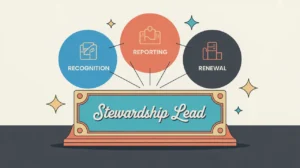What Does the MEL Manager Role Involve?
A MEL (Monitoring, Evaluation, and Learning) manager is responsible for managing the day-to-day implementation of MEL systems across programs and organizational functions. This includes overseeing data collection and analysis, ensuring quality and compliance with MEL frameworks, supporting evaluations, and facilitating learning processes. The role typically sits within research, data, strategy, or program functions. In nonprofits and social enterprises, MEL managers ensure that evidence is systematically gathered, analyzed, and used to improve program performance and meet funder expectations.
At What Level does this Role Operate?
Mid Level: This role typically reports to a MEL lead, MEL director, or head of strategy. It involves coordination with program teams, management of MEL associates or officers, and responsibility for operationalizing MEL frameworks.
Relative Employability: MEL manager roles are in high demand across nonprofits, social enterprises, development agencies, and international NGOs. As the MEL function becomes more central to program quality and funding, organizations increasingly rely on capable managers to maintain robust evidence systems.
Relative Pay Scale: MEL manager roles sit within mid-level pay bands, reflecting their managerial responsibilities, technical MEL expertise, and operational leadership.
What are the Key Responsibilities and Activities?
- Manage the implementation of MEL frameworks and systems across programs and functions
- Oversee data collection, management, and analysis to ensure accuracy and adherence to standards
- Supervise MEL staff and coordinate activities with program and strategy teams
- Support the design and execution of evaluations and learning activities
- Monitor data quality and ethical standards in all MEL processes
- Produce regular reports and dashboards for internal decision making and external funder reporting
- Facilitate learning sessions to translate evidence into actionable insights
- Build capacity among staff and partners on MEL concepts, tools, and practices
What Core Competencies and Qualifications are Needed?
Required Qualifications and Experience
The following reflect common qualifications and experience expected for this role, while recognizing that pathways may vary by context, organization, and region.
- Academic background in social sciences, statistics, economics, public policy, development studies, or related fields, or equivalent professional experience
- Experience managing MEL systems and teams in nonprofits, social enterprises, or development contexts
- Technical proficiency in data collection, analysis, reporting, and MEL methodologies
- Strong project management and coordination skills
- Ability to synthesize and communicate complex findings clearly
- Familiarity with funder MEL requirements and relevant standards
Key Competencies
- MEL system management and operational leadership
- Data collection oversight and quality assurance
- Evaluation support and methodological understanding
- Team supervision and cross-functional coordination
- Evidence synthesis and reporting
- Learning facilitation and capacity building
- Strategic collaboration with program and strategy teams
How are AI and Automation Shaping this Role?
An AI-native MEL manager will look to AI and automation to strengthen operational MEL processes. They can use AI tools to automate data cleaning, indicator tracking, and dashboard updates, reducing manual work and increasing accuracy. Machine learning can help detect trends and anomalies earlier, enabling more responsive program adjustments. By integrating these tools, MEL managers can focus more on ensuring data quality, guiding learning processes, and supporting strategic decision making.
What Career Pathways and Transferable Skills are Associated with this Role?
MEL manager roles can lead to positions such as MEL lead, MEL director, or research and insights director. The skills developed in system management, data oversight, reporting, and learning facilitation are highly transferable across nonprofits, social enterprises, development agencies, and research organizations. This role provides a critical bridge between technical MEL work and strategic application at the organizational level.







